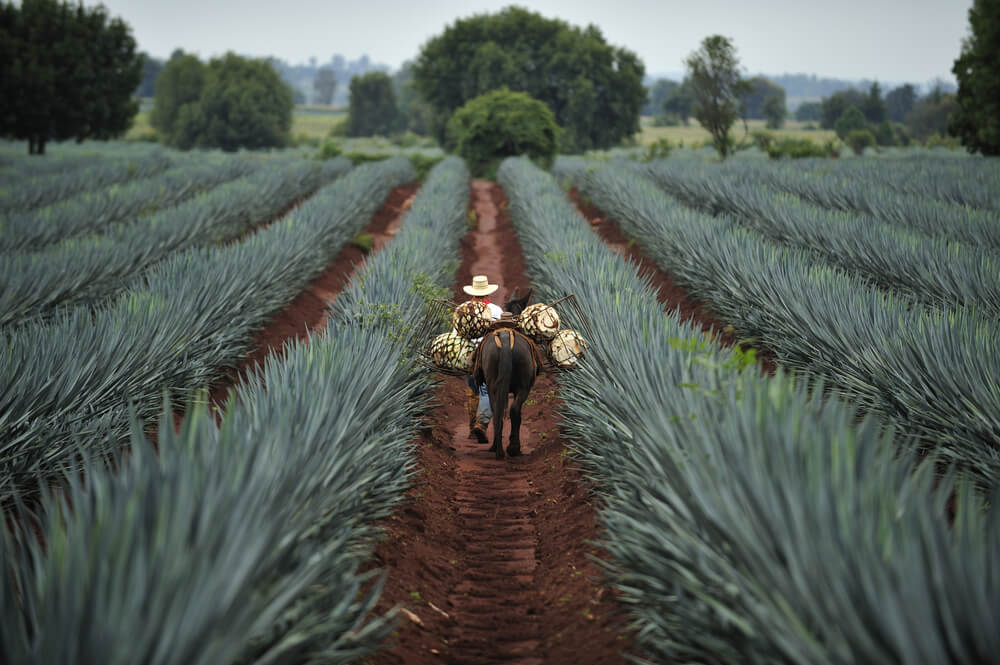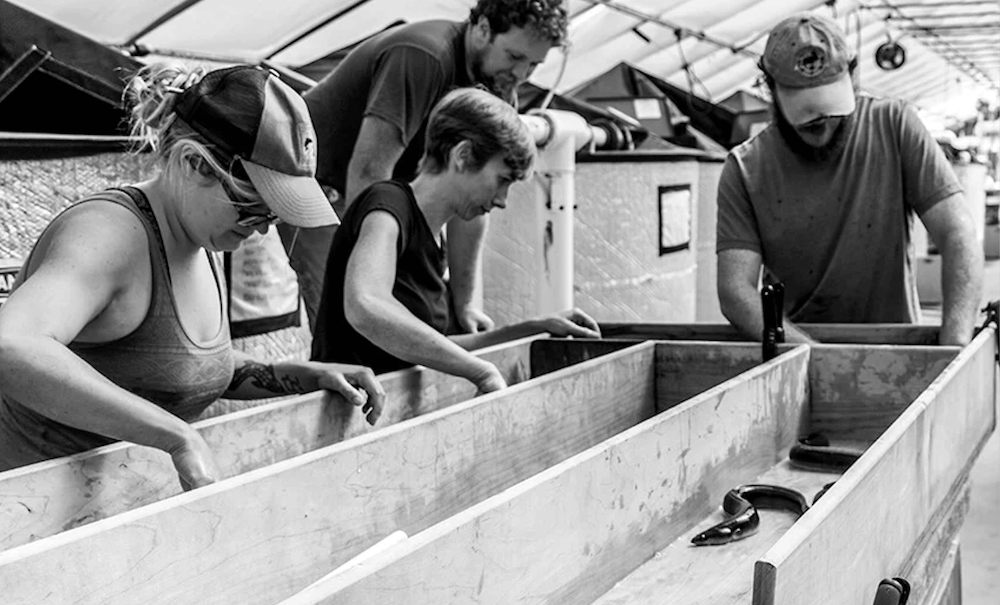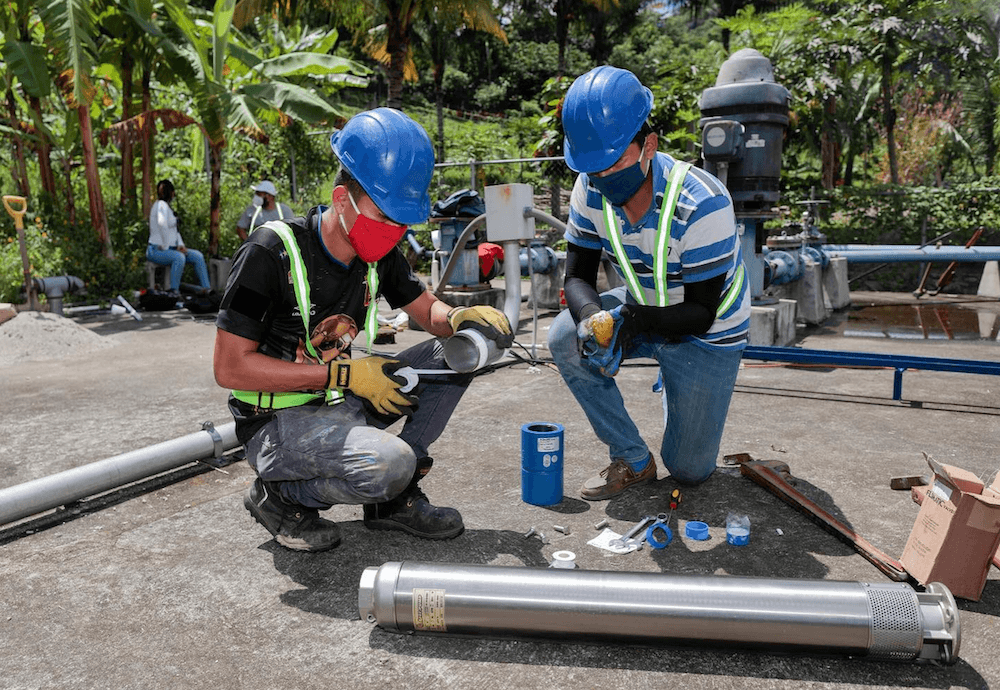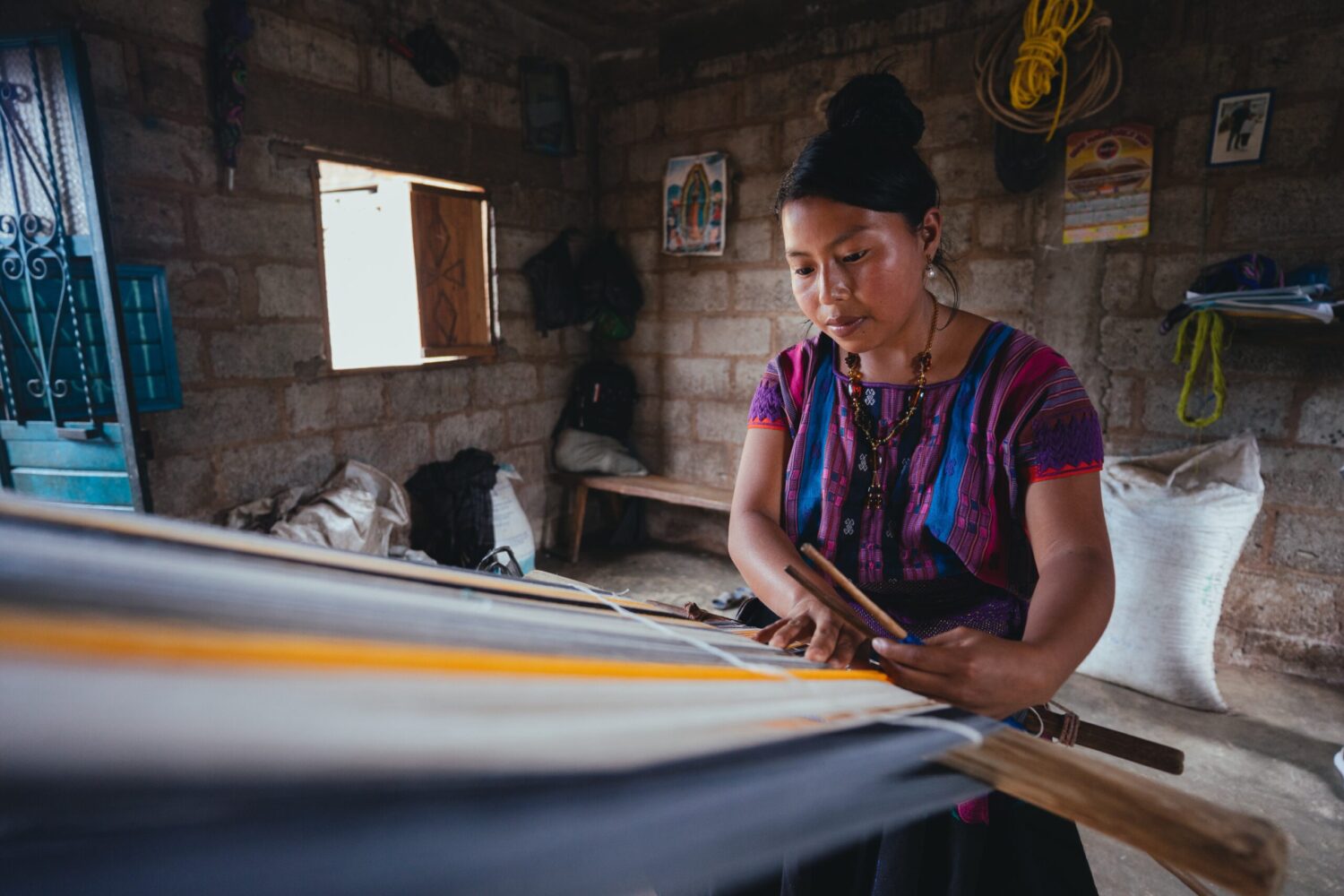ImpactAlpha, April 4 – The 53rd annual Earth Day is coming up on April 22. Private investors are more engaged than ever.
This month’s Liist of eight impact funds currently raising capital highlights new strategies for restoring land and marine ecosystems, while building healthy, resilient food systems and communities.
Latin America, home to some of the most biodiverse – and vulnerable – forestlands in the world, is a hotbed for new regeneration-focused impact investing models and funds.
Two funds in Latin America with unique impact-aligned profit models are acquiring degraded and under-valued farmland and boosting productivity by converting the land to regenerative agricultural practices. In Mexico, Asymmetrica Investments will give farm workers a cut of the profits. In Brazil, fund management partners Vox Capital and Regia are tying their remuneration to their success in implementing regenerative techniques.
Also in Brazil, Positive Ventures is raising its second venture capital fund, a portion of which will be invested in companies developing “planet positive” solutions, such as waste and water management and efforts to support a low-carbon transition. Its remuneration, too, is tied to impact: the firm must maintain its B Corp status.
In Europe, Ocean 14 Capital is in the final stretch of fundraising for its €150 million ($164 million) fund to invest in sustainable marine ecosystems and ocean-based food production.
In the U.S., Capital Good Fund is raising a small loan fund to ensure that low- and middle-income families and BIPOC households are able to participate in the renewable energy transition and its benefits by installing home solar and battery storage systems. Rethink Capital Partners is eying a much bigger fund to invest in tech ventures that are improving the environmental sustainability, nutrition, affordability and racial equity of our food system.
Also on this month’s list: two funds that are supporting Africa’s homegrown impact tech entrepreneurs. Two fund managers, Verod Capital and Kepple African Ventures, are partnering on a $100 million fund to fuel the growth of tech ventures in mobility, climate resilience and other sectors. Jaza Rift Ventures is supporting early-stage health tech entrepreneurs that are making healthcare in Africa more targeted, relevant, affordable and accessible.
Know an impact fund manager currently raising capital? Drop us an email or complete this short form.
Disclaimer: The Liist and this post are based on available information, sourced by ImpactAlpha. Information has not been further reviewed by the managers nor verified by third parties, is not guaranteed for accuracy or completeness, and should not be relied upon as investment advice or recommendations. Nothing in The Liist, this post or on ImpactAlpha.com shall constitute an offer to sell or the solicitation of an offer to buy securities.
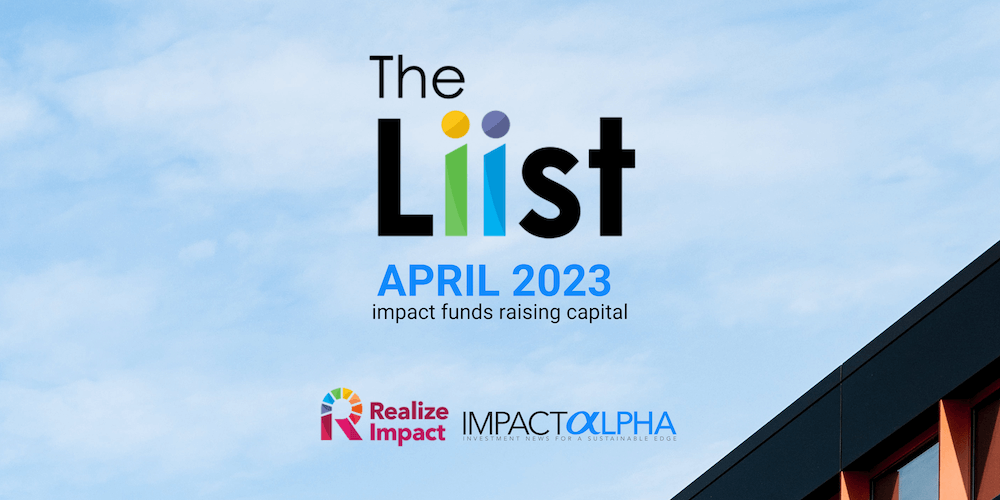
Asymmetrica Investments
The Mexico and Switzerland-based investment firm believes that fertile, arable land in Mexico is undervalued. “Our research has led us to identify asymmetric investment opportunities in high-margin agricultural assets in Mexico,” the company says.
Asymmetrica’s strategy to capitalize on these opportunities is to buy farmland from retiring farmers, transition the farms to organic practices – and give farm workers a cut of the equity. The firm’s model offers investors a high-impact hedge in the current inflationary environment, Asymmetrica’s Francisco Escobar told ImpactAlpha. “This not only benefits the environment but also addresses the aging farmer population in Mexico.”
- Natural capital. Asymmetrica is looking to raise $30 million for its Avo Capital Fund. It will invest in around 15 farmland businesses, two-thirds of which will be in Mexico and the U.S., where around more than half of farmers will reach retirement age in the next decade. The rest of the investments will be elsewhere in Latin America. The Canada-domiciled fund has a hard cap of $100 million. Contact Escobar for more information.
Capital Good Fund
The Biden Administration’s Inflation Reduction Act is expected to supercharge household electrification and transition to greener power sources, among other significant economic and climate impacts. Capital Good Fund is working to ensure that the green transition reaches low-income communities and communities of color.
The Providence, R.I.-based community development financial institution is raising $3 million to support its lending program that helps low- and middle-income families in Rhode Island, Massachusetts and Texas purchase residential solar and battery storage systems.
“Adoption of solar among lower-income families is very low, and our product makes adoption easier,” Capital Good Fund says. It also helps families save money on their energy bills, creates good-paying green jobs, and reduces greenhouse gas emissions.
- Securitized solar loans. The Green New Deal Fund will acquire and bundle loans made by the organization, to free up additional capital to lend. Sixty percent of the loans in the fund are to low-income and/or BIPOC households. The Green New Deal Fund is anchored by the Dunn Charitable Foundation and has so far raised $700,000. The fund is open to accredited investors in the U.S. with a minimum investment of $5,000. Get in touch with Andy Posner for more information.
Jaza Rift Ventures
The Kenya-based venture fund wants to catalyze healthcare solutions in Africa that are designed with an African lens. The majority of healthcare and medical research applied to interventions on the continent come from overseas. Studies, drugs and treatments are not tailored to African populations.
“We need to do our own research to be able basically to treat the problem we face,” Jaza Rift’s Sewu-Steve Tawia tells ImpactAlpha.
Jaza, which means “to fill” in Swahili, is looking to fill a very early-stage funding gap for Africa’s homegrown health tech ventures.
It has backing from the Lemelson Foundation for its $5 million pilot fund, Jaza Pioneers. It’s eyeing a closing date of September.
- Pipeline partners. Healthcare entrepreneurs raised less than 3% of the nearly $5 billion in venture funding that went to African startups in 2022, Jaza Rift says. The fund is building a deal pipeline with incubator and accelerator partners, like sister firm Villgro Africa in Kenya, as well as Founders Factory Africa in South Africa and Healthtech Hub Kigali in Rwanda. The fund will cut checks starting at $200,000, and will prioritize ventures in East and West Africa, with the option to invest in South Africa and Egypt. Jaza Rift’s goal is to impact 30 million Africans through its investments by 2030. Get in touch by email.
Ocean 14 Capital
The European venture fund is raising a €150 million ($164 million) impact fund to invest in the “blue economy.” Aquaculture, fishing and marine ecosystems provide 40 million jobs globally and are projected to be worth $3 trillion by 2030.
The fund invests in companies that support food security and sustainable marine ecosystem management. Its portfolio includes Brazilian tilapia producer Tilabras Aquaculture and Singapore-based SyAqua, a supplier of specialized shrimp to hatcheries and farmers.
Two-thirds of the capital will be invested in European ventures.
- Close to close. Ocean 14’s first fund, domiciled in Luxembourg, has secured €130 million towards its target. Limited partners include the European Investment Fund, Ingka Investments and the Constitutional Reserve Fund of Monaco. The European Fund for Strategic Investments. provided a first-loss guarantee. Contact Chris Barnes for more information.
Positive Ventures
The Sao Paulo-based B Corp launched in 2017 to “ensure that impact investing drives the transformative change required for a prosperous, equitable, healthy, and safe Latin America.” Positive Ventures manages $40 million in assets for its clients.
It’s now raising its second fund, with a focus on two themes: planet prosperity and social resilience. The fund, called Positive Ventures Decisive Investments I, is looking to raise $30 million to make early-stage equity and convertible debt investments in ventures addressing the low-carbon economy, waste and water management, financial inclusion, healthy living, and the future of work.
“We seek to identify companies that will be on the right side of the structural social and economic changes that are already underway,” the company says. “Our shorthand for this is ‘system positive’.”
It has invested in four investments from the fund in companies in Brazil, Chile and the U.S.
- Impact incentives. Positive Ventures’ fund, domiciled in Delaware, has raised $20 million from a mix of accredited and regular investors, including multi-family offices, international banks and individuals. It uses a traditional 2/20 fund model with a twist: it only earns its performance fee if it maintains its B Corp. certification. Contact Murilo Johas Menezes to learn more.
Rethink Capital Partners
New York-based Rethink Capital Partners has for 40 years “been making investments that seek to drive both financial returns and contribute to the betterment of our society, our communities and our planet.” Rethink Food is one of four targeted investment divisions managed by the $3 billion fund manager.
The Rethink Food fund is looking to raise $100 million to invest in food tech founders that are redesigning the food system around environmental sustainability, nutrition, and healthy food’s accessibility and affordability in underserved communities.
Rethink Food will cut equity checks of $2 million to $8 million to U.S.-based ventures involved in food waste tech, ingredients, agtech and precision farming, sustainable food distribution, “food as medicine,” and packaging. It’s backed by the Mortenson Family Foundation, Bank of America and former CEO of PepsiCo Indra Nooyi.
- Food tech portfolio. Rethink Food has made seven investments, including Planet FWD, a Black woman-led startup tracking the carbon emissions of consumer product brands, and plant-based food developer Motif Foodworks. The fund tracks impact metrics aligned with U.N. Sustainable Development on hunger (No. 2), health and wellbeing (No. 3), inequality (No. 10), sustainable consumption and production (No. 12) and climate action (No. 13). Contact Rini Greenfield for more information.
Verod-Kepple Africa Ventures
The Pan-African investment fund backs Africa’s homegrown tech ventures addressing mobility, climate resilience and other challenges on the continent. The fund is a partnership fund between Nigerian private equity firm Verod Capital and Kepple African Ventures, a Japan and Kenya-based firm.
The fund focuses on Series A-stage ventures and writes equity checks of $2 million on average. It has have backed eight companies, including Moove, a vehicle finance venture for drivers on the Uber platform, and Nairobi-based KOKO, which is replacing dirty cooking fuel in households in Kenya with its low-cost bioethanol fuel.
- First close. The Verod-Kepple fund, domiciled in Luxembourg, has raised $43 million toward a $100 million target. Investors in the fund include SBI Holdings, the Japan International Cooperation Agency, Sumitomo Mitsui Trust Bank, Toyota Tsusho Corp. and Japanese movie director and stuntman Osamu Kaneda. Get in touch via email.
VOX Regai regenerative agriculture fund
Ninety percent of global deforestation is a consequence of agriculture, livestock rearing and timber industry expansion. The problem is especially visible in Brazil, where more than a quarter of greenhouse gas emissions come from the agriculture sector and more than half of pastureland is degraded.
Impact investor Vox Capital is teaming up with Regai on a regenerative land fund that will acquire degraded farmland in Brazil’s Cerrado biome and implement regenerative agriculture practices and restore soils.
“Producers need CAPEX to implement models, they need technical assistance to assure best practices, and they need a capital structure that understands the natural lifecycle of restoration,” the partners say.
The fund will provide long-term capital alongside technical assistance. “By doing so, the fund’s impact goal is to achieve food security while preventing further deforestation,” the partners explain.
- Impact carry. The fund’s carry, or remuneration, will be tied to a key impact metric: acres of land regenerated in line with the ICLF protocol. The fund managers will also track progress against other metrics, including increased agricultural productivity, acres of restored native land, soil quality, tons of carbon captured, and new jobs created.
- Open for business. The Brazil-domiciled fund, called VOX Regai I Fiagro Participações Verde, is looking to raise 500 million reais (about $100 million), with a first close in October of this year. The fund will invest 25 million to 100 million Brazilian reais ($5 million to $20 million) per asset. The managers’ aim is to “restore rural real estate productivity and sell the land at a premium once the restoration cycle is complete.” Get in touch with Gilberto Ribeiro for more information.

